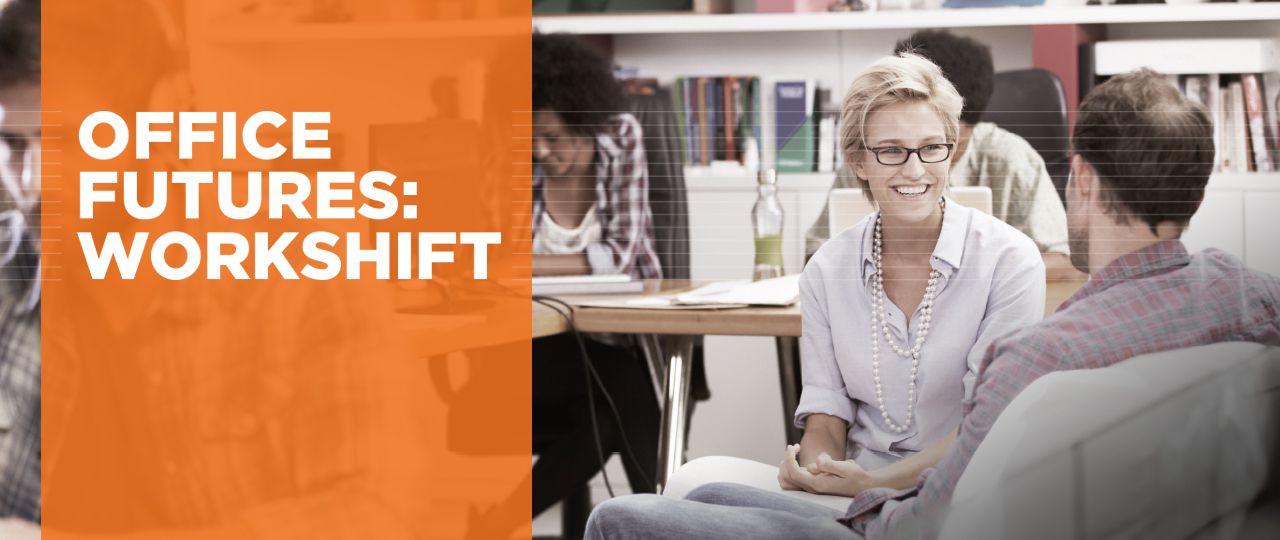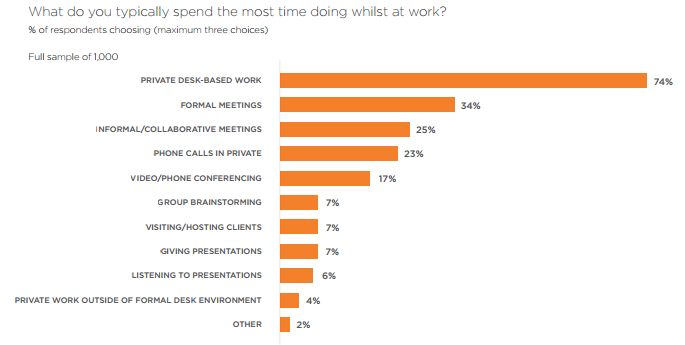
Throughout much of today’s literature on how people work and the offices they work in, much, perhaps too much, emphasis has been on collaboration, coworking, funky design and even what the latest coffee trend is.
The question is: amongst all of this, have we lost sight of what staff are actually doing? And more importantly, how does office space contribute to their output and their speed in achieving it (productivity)? Would workers perhaps want the focus to be on the space that allows them to work best and fastest, allowing more time for friends and family; as opposed to ‘cool’ (read: distracting) office space that eats into their personal time?
In the latest research from our Property Futures research programme, Office Futures: Workshift looks at what London office workers want from their office. The research is based on a survey of 1,000 full-time office workers from across London, asking them a range of questions on workstyles, technology and office location.
One of the key questions we asked staff was, what do you actually do at work? For surely any conversation around office space needs to start here. From a list of typical work activities our respondents were allowed to pick up to three that they spent the most time on at work.
What our respondents said was obvious, but also something that needed re-emphasising. For 74% of them, ‘private desk-based work’ remains a fundamental task. Trailing in second was the much-maligned activity - the ‘formal meeting’.

This data thus begs the question: is the office space companies are providing to staff the space that best allows them efficiently complete the tasks they are doing?
Increasingly, it would seem not. Having been accepted as the best modern work environment for a long time, the now ubiquitous open-plan office is beginning to be questioned by the business world more and more.
Research from OPP, the business psychologists, called Type and Work Environment examined how employees with varying personalities felt about the places they work in. A key takeaway from the research was that although most people work in open plan constructs, they would not choose them. Furthermore, workers in smaller shared offices were more satisfied with their jobs. Overall extroverts reported far higher levels of job satisfaction and happiness at work than introverts.
The issue then, is not just that all workers require space better-suited to private work, but that their personalities can dictate the extent to which they need it.
We have already seen some occupiers increasingly consider the provision of small quiet rooms or even sound-proofed chairs to ensure that their staff can lock themselves away for quiet work when necessary. UBM’s head office in Blackfriars, London, is a strong case in point with sound-proofed chairs providing staff with both quiet areas to work and a great view over London at the same time.
Looking forward, as firms become ever more conscious of employee needs, we should expect them to develop a more detailed understanding of both what their staff are actually doing in the office, but also their workforce’s personality mix. This structural shift in firms’ attitudes to their employees cannot come soon enough.
